
Hair Follicle Drug Tests Explained
A hair follicle drug test can detect whether a person has illicit or prescription drugs in their system. If...
Read moreHelp patients book appointments with you on Solv. It's free!
20 instant-book locations
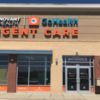

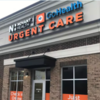
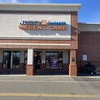
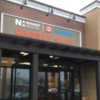
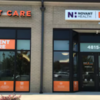
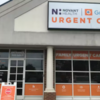

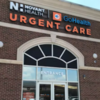
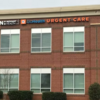

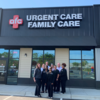
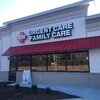
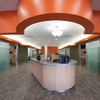
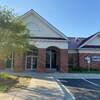
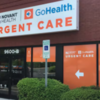
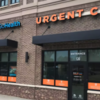
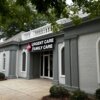
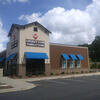
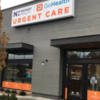
Help patients book appointments with you on Solv. It's free!
More than 16 percent of North Carolina's residents live below the poverty line. That's larger than the U.S. average (14.3 percent). Studies have shown that poverty often makes it difficult for people to access primary care that encourages long-term health management. Urgent care centers and walk-in clinics, however, could help stabilize North Carolina's healthcare environment by giving residents affordable, immediate access to necessary healthcare services.
Practically every town in North Carolina has an urgent care center that can meet non-emergency needs. Some options include FastMed Urgent Care, which has locations throughout the state. Other urgent care providers in North Carolina include Carolina Quick Care, Medac Health Services, and MedAccess Urgent Care.
Urgent care centers offer patients a way to seek medical attention outside of typical business hours. If they suddenly feel sick, sustain a minor injury, or need medication, then they can get assistance from urgent care center without an appointment. These centers cost less than visiting an ER, which is good for anyone trying to avoid excessive fees.
North Carolina also has plenty of walk-in clinics. Many CVS pharmacies throughout the state have walk-in clinics called Minute Clinic. These clinics specialize in treating non-life-threatening illnesses at relatively low cost. If an uninsured person has a rash, flu symptoms, or other common ailments, staffs at walk-in clinics can usually diagnose the problem, prescribe medications, and recommend further treatments. A high poverty rate creates barriers to healthcare, but the urgent care centers and walk-in clinics of North Carolina make it easier for people of all income levels to seek adequate care without turning to emergency rooms.
The price charged at an urgent care, whether in North Carolina or elsewhere, will be based on the location, and there are no actual standard costs between the clinics. Assuming you are paying with cash, you might come across an urgent clinic that charges you $50 while another situated some mile away charges you $100 for the same services. The standard cost in urgent care where insurance cover is not involved ranges from $100 to $125. This price is generally the standard price of a visit before extra services. There are a couple of additional care services that could make your appointment to an urgent care costly including x-rays and lab tests, medications and injections (such as immunization), casting broken bones, as well as stitches and splints. If you have a viable insurance plan in place, the standard pay will be between $20 – 50 depending on your insurance coverage and whether you are in contact with the provider.
Most primary care doctor offices are open during routine work hours, Monday thru Friday, 9:00 am to 5:00 pm. Conversely, most of the urgent care centers in North Carolina are available after hours, on weekends, and many holidays. Typical urgent care hours are 8:00 am to 8:00 pm daily, although location-specific hours may vary.
Historically, urgent care centers were strictly an on-demand, walk-in healthcare service mode. More recently, as consumer behaviors and expectations have evolved, many urgent care clinics have begun offering book ahead visits, allowing consumers to select a same-day or next-day time that works best for their schedule. Use Solv to find a North Carolina urgent care center that offers advanced bookings (or appointments) and book online.
Solv allows North Carolina residents and visitors to book urgent care visits online with just a few taps. Same-day and next-day visit times are generally available, and you can search for real-time availability clinics.
Solv allows you to find any of the urgent care and walk-in clinics in North Carolina, many of which accept most major commercial insurances. Just browse the clinics page to see if your carrier and plan is listed. If you are still unsure, it is best to contact the urgent care center directly for clarification.
Many urgent care centers, including those in North Carolina, now offer virtual visits or telemedicine for residents and visitors throughout the state. Virtual urgent care visits are generally booked online whether in advance or on-demand. Clinics that do offer virtual care have a video icon on their profiles.
While it would be easy to provide a list of urgent care centers in and around North Carolina, 'best' is a challenging term to qualify. For some consumers, that could mean the closest location whereas other people may prioritize patient reviews, service costs, availability, or whether or not the provider accepts their insurance. With the list of locations above, use the filters provided to narrow the results to find the best urgent care for your needs.
Urgent care is available to assist patients that are looking for immediate, convenient medical care. In that manner, they are similar to an emergency room. The difference, however, is that ERs are meant to treat major, life-threatening injuries and illnesses while urgent care centers manage life’s minor bruises and bumps. In simple terms, an urgent care is seen as a walk-in health center that focuses in offering non-emergent health care conditions, including the treatment of the typical illnesses and injuries such as fractures and sprains, cuts and burns, scrapes, stings and bites, flu and cold symptoms, nausea and vomiting, abdominal pain, and much more. Most urgent care facilities offer both diagnostic and preventive care such as well visits, immunizations, STD testing and annual physicals. For regular visits and check-ups on these clinics, you should expect to pay between $20 and $100. The good thing is that most urgent care clinics will accept major PPOs and insurance cover, Medicare, as well as self-pay in the form of credit cards or cash. Urgent care clinics are located in most parts of the country in various regions to offset emergency room visits and provide a gap in healthcare services. They take patients during all hours of operations, which offer a significant convenience to most people who have and continue to undergo the need for sudden and immediate medical attention.
Chickenpox Vaccine in North Carolina
DOT Exam in North Carolina
Ear Wax Removal in North Carolina
Flu Shot in North Carolina
Hepatitis Vaccine in North Carolina
Measles Vaccine (MMR) in North Carolina
Physical Exam in North Carolina
Shingles Vaccine in North Carolina
Sports Physicals in North Carolina
Tetanus Shot in North Carolina
Typhoid Vaccine in North Carolina
Yellow Fever Vaccine in North Carolina
A1C Test in North Carolina
Allergy Testing in North Carolina
Basic Metabolic Panel in North Carolina
Blood Test in North Carolina
CMP Test in North Carolina
COVID-19 Antibody Test in North Carolina
Cholesterol Test in North Carolina
Diabetes Test in North Carolina
Drug Test in North Carolina
Glucose Test in North Carolina
Hepatitis test in North Carolina
Mono Test in North Carolina
RSV Test in North Carolina
STD Testing in North Carolina
Strep Test in North Carolina
TB Test in North Carolina
Urinalysis in North Carolina
Vitamin D Test in North Carolina
Tips, advice, news—your resource to stay healthy and safe while improving your experience with healthcare providers when you need them.